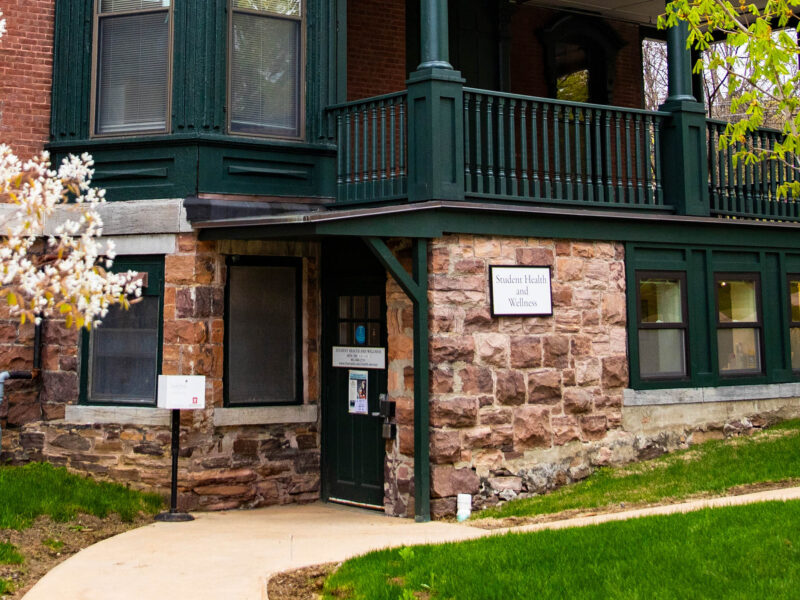Parent Hub
Resources for parents, guardians, and family members of current and prospective students.

Quick Links for Parents
- Undergraduate Admissions Parent Page
- Admissions & Aid
- Admitted Student Site
- Office of Financial Aid
- Compass Student Services
- Dates & Deadlines
- Mail Center
- Bookstore
- Parent & Family Relations
- Student Accounts
- Campus Public Safety
- Office & People Directory
- Student Health Center
- Student Affairs, Diversity & Inclusion
Search All Offices & Departments
Find any office. Simply start typing the name of the office. Have an admissions question? Feel free to call/text our Admissions team at (802)625-0201 or email: admission@champlain.edu.

Champlain Visit Scholarship
We’re offering a scholarship, applied toward your tuition, just for spending a day with us! Simply make an official campus visit to Champlain College, and you’ll automatically receive a $4,000 scholarship toward your tuition—$1,000 each year you’re enrolled.
Learn More!FAFSA Scholarship
Starting Fall 2026, incoming students can get $500 annually simply by filing the FAFSA! No additional application. Just file your FAFSA and your scholarship will show as part of your Financial Aid award.
You must file your FAFSA each year to continue receiving the scholarship.
Start Your FAFSA
Sending Mail and Packages to your Champlain Student
It can be emotional as your student heads off to college, but letters, cards and care packages can be a fun way to bridge the miles.
Residential Student Mailing Address:
(Residential Student Name)
Champlain College
375 Maple Street
Burlington, VT 05401

The Care Team is a multidisciplinary group that meets regularly to discuss referrals from Champlain community members who have observed students in distress who may need wellbeing support.

The Counseling Center offers a variety of services and resources in Skiff Hall. Schedule an appointment or contact our 24/7 on-call counselor.

The Student Health Center is available to all degree-seeking students taking classes on campus. Get in contact with a health provider today!

Champlain Weekend
Champlain Weekend is a three day celebration full of events, activities, and learning opportunities for families, alumni, and students. We can’t wait to see alumni back on campus as well as welcome families and online students to our home in Burlington
Visit the Champlain Weekend WebsiteAcademic Resources
Different by Design
Academic Calendar
Academic Coaching & Peer Tutoring
Academic Requirements
Accessibility & Accommodations
Advanced Placement
Areas of Study
Career-Focused Academics
Different by Design
Dual Enrollment
International Education
Library
Portfolio Requirements
Pre-College Summer Programs
Study Abroad
Transfer Course Approval
Undergraduate Catalog
Academic Calendars
-
Fall Semester 2025
Classes Begin Aug. 25 Add/Drop Aug. 25 – 29 No Classes – College remains open Sept. 19 Indigenous Peoples Day Holiday Observance Oct. 13 Registration for Spring Classes Oct. 27 – Nov. 7 Last Day to Withdraw Nov. 7 Thanksgiving Break Nov. 24 – Nov. 28 Last Day of Classes Dec. 12 Finals Dec. 8 – Dec. 12 Winter Break Dec. 15 – Jan. 11 -
Spring Semester 2026
Classes Begin Jan. 12 Add/Drop Jan. 12 – 16 MLK Day Off Jan. 19 Spring Break Mar. 9 – 13 Registration for Fall Classes Mar. 23 – Apr. 3 Last Day to Withdraw Apr. 3 Day Off Apr. 10 Last Day of Classes Apr. 24 Finals Apr. 27 – May 1 Commencement May 9 -
Fall Semester 2026
Classes Begin Aug. 24 Add/Drop Aug. 24 – 28 No Classes – College remains open Sept. 18 Indigenous Peoples Day Holiday Observance Oct. 12 Registration for Spring Classes Oct. 26 – Nov. 6 Last Day to Withdraw Nov. 6 Thanksgiving Break Nov. 23 – Nov. 27 Last Day of Classes Dec. 11 Finals Dec. 7 – Dec. 11 Winter Break Dec. 12 – Jan. 10
High School to College Timeline
-
Junior Year of High School
- Take the PSAT in October
- Research Colleges
- Sign up for Extracurriculars
- Narrow Down Your College List
- Take the ACT or SAT as Practice in the Spring
-
Senior Year of High School, Fall
- Visit College Campuses
- Meet With Your Guidance Counselor
- Take the ACT or SAT
- Apply to Scholarships
- Ask for Letters of Recommendation
- Complete the Free Application for Federal Student Aid
- Complete Early Decision or Early Action Applications
- Start Regular Decision Applications
-
Senior Year of High School, Spring
- Keep Track of Deadlines
- Wait for Acceptance Letters
- Review Financial Aid Packages
- Take AP Exams and Send Results to Colleges for Credit Evaluation
- Send Your Final High School Transcript
- Make Your Decision by May
- Pay Your Deposit to Enroll
-
Summer Before First Year of College
- Activate Your Champlain Account
- Access Your MyMail Account
- Make Your AP Exam Results were Sent for Credit Evaluation
- Choose Housing
- Add Authorized Users to Your Billing Accounts
- Respond to Enrollment Deadlines in a Timely Manner
- Admitted Student Weekend
Excellence You Can Count On



Request More Information
Next Steps
News From The View

Your Essential College Packing List

Alumni Business Spotlight: Corrine Levinthal at J skis

20 Jobs You Can Pursue With a Cybersecurity Degree

Cybersecurity vs. Computer Science: Which Degree Is Right for You?

What Can You Do With a Degree in Digital Forensics? Career Paths to Explore
More Inside Parent Hub
Parent Hub
Resources for parents, guardians, and family members of current and prospective students.
Admission & Aid
Support for Students
Career Readiness
Campus Life
Academic Resources